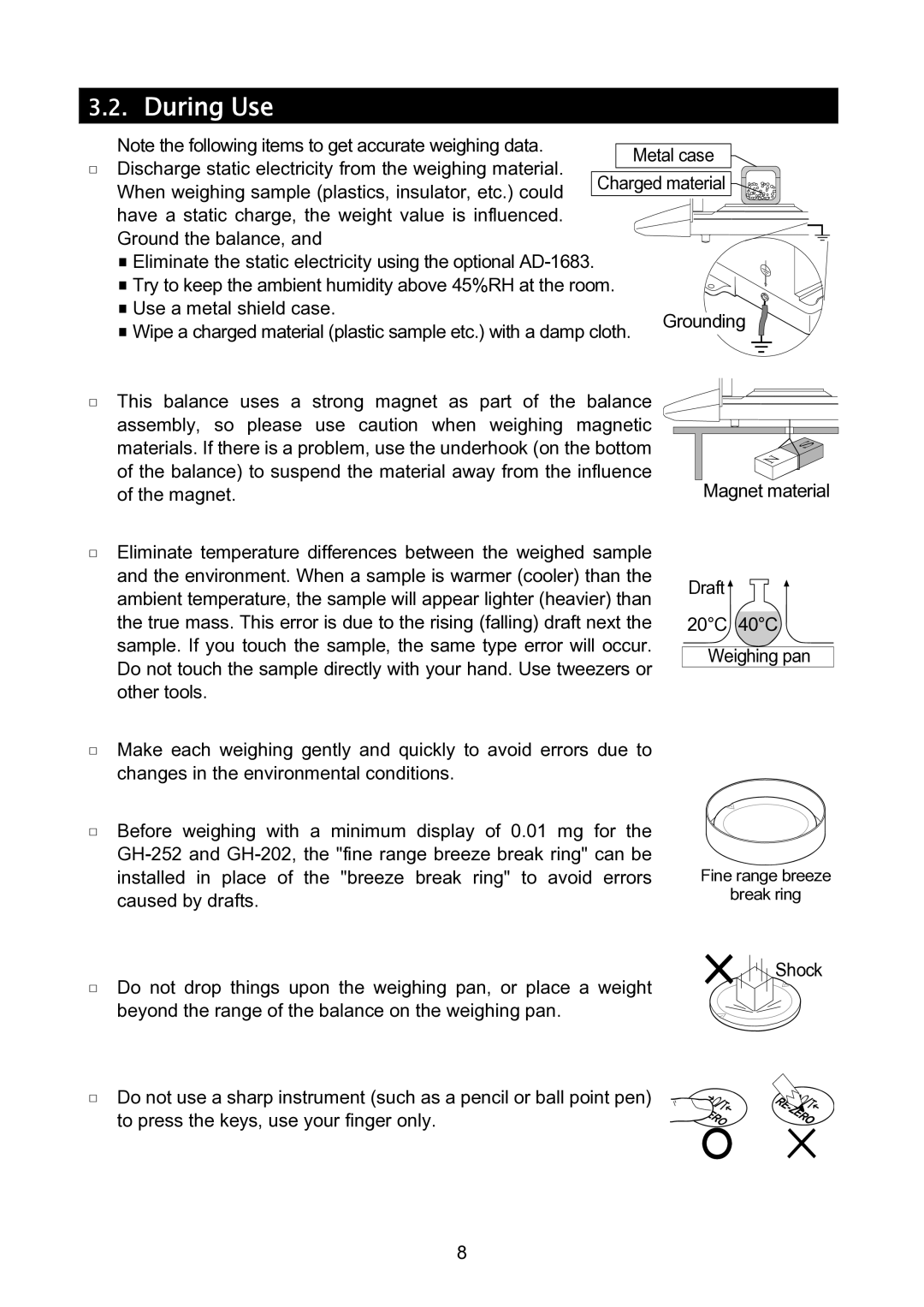
3.2.During Use
Note the following items to get accurate weighing data. Discharge static electricity from the weighing material. When weighing sample (plastics, insulator, etc.) could have a static charge, the weight value is influenced. Ground the balance, and
![]() Eliminate the static electricity using the optional
Eliminate the static electricity using the optional
![]() Try to keep the ambient humidity above 45%RH at the room.
Try to keep the ambient humidity above 45%RH at the room.
![]() Use a metal shield case.
Use a metal shield case.
![]() Wipe a charged material (plastic sample etc.) with a damp cloth.
Wipe a charged material (plastic sample etc.) with a damp cloth.
This balance uses a strong magnet as part of the balance assembly, so please use caution when weighing magnetic materials. If there is a problem, use the underhook (on the bottom of the balance) to suspend the material away from the influence of the magnet.
Eliminate temperature differences between the weighed sample and the environment. When a sample is warmer (cooler) than the ambient temperature, the sample will appear lighter (heavier) than the true mass. This error is due to the rising (falling) draft next the sample. If you touch the sample, the same type error will occur. Do not touch the sample directly with your hand. Use tweezers or other tools.
Make each weighing gently and quickly to avoid errors due to changes in the environmental conditions.
Before weighing with a minimum display of 0.01 mg for the
Do not drop things upon the weighing pan, or place a weight beyond the range of the balance on the weighing pan.
Do not use a sharp instrument (such as a pencil or ball point pen) to press the keys, use your finger only.
8
Grounding
Magnet material
Draft ![]()
20°C 40°C ![]() Weighing pan
Weighing pan
Fine range breeze
break ring
